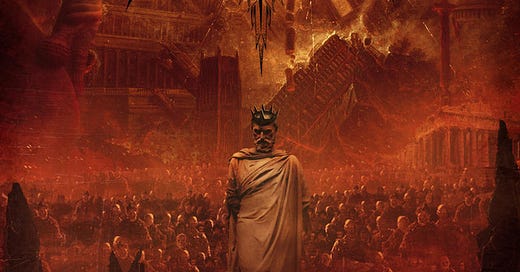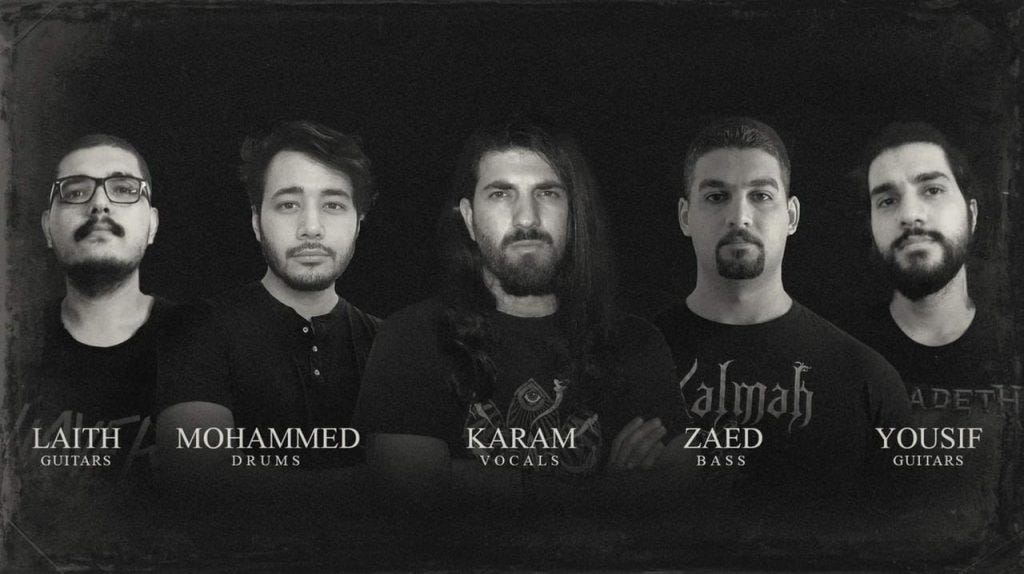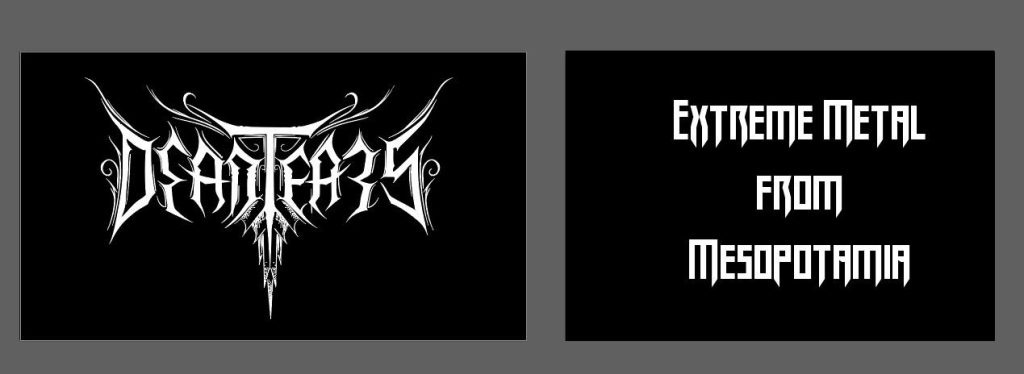Karam Bassam: ‘In their hearts, they are still metal musicians’
After a wave of popularity, heavy metal music has gone underground in Iraq
The band Dead Tears can’t publicize their next show. This will be the first time the Iraqi heavy metal group performs together in public but the event will take place behind closed doors.
“We could be threatened by militias or prevented from performing.” the 29-year-old singer-songwriter Karam Bassam says.
Earlier this month, Iraqi authorities canceled a concert by the popular Moroccan singer Saad Lamjarred after protesters stormed the venue and demanded it be called off on religious grounds. “Most of his songs are about love, while metal covers everything,” Bassam says, listing mythology, violence, depression, and suicide as some of the more controversial subjects he touches on in his music. “The idea that metal music is evil and satanic still exists in Iraqi society,” says Karam.
Once, there was a sizeable community of metal fans in Baghdad, but in recent years numbers have dwindled. “After the war, there was a wave of metal music, a lot of people started listening to it,” Bassam recalls. “There were live music events and concerts, then the mood changed and it became dangerous so people switched to acoustic guitar, old-school rock songs, and pop.
“But in their hearts, they are still metal musicians,” he adds.
These days, the heavy metal community is much smaller - “everyone knows everyone,” he says. This has some advantages. Bassam joined Dead Tears at the end of 2019 when the band contacted him after seeing his covers on YouTube. Vocalists are hard to find in Iraq and it was a good fit, he says. They started recording their first album right away and released it in December 2020, racking up 20,000 hits on YouTube from viewers around the world.
The band, including lead singer Bassam, bassist Zaed Saad, drummer Mohammed Raad, and guitarists Yousif Alash and Laith Al-Safar, are heavily influenced by Scandinavian death metal groups like Dark Tranquility, Be’lakor, and At the Gates. Their lyrics, most of which are written by Bassam, cover a broad span of subjects, some inspired by personal experiences, others by stories they see on the news and the struggles people face in Iraq.
For Bassam who was drawn to metal by the power, weight, and complexity of music by American artists like Randy Blythe, it’s a powerful medium to raise awareness and inspire change. “Music, in general, can be a very potent tool to educate people about issues, society, politics, the environment – everything. I think what makes metal different is the lyrical content and the visuals.”
The first album, called Wretched Earth, has an anti-establishment tone, exploring themes of human existence and history. The essence of the music is captured on the cover, which features a figure of authority before a large crowd whose world is burning down behind them. “Instead of trying to fix what’s happening they are just blindly following,” Bassam explains. “It’s saying that we are leaving what’s really important behind, destroying our past and present by blindly following someone doing something for their own sake.”
The band is now working on a second album, supported by a grant from Ideas Beyond Borders. Echoes from Eternity builds on the themes of the first but incorporates more personal elements. “It’s based on the idea that everything happens in a cycle – drawing on Nordic mythology and the ouroboros symbol of the snake biting its tail.”
These are topics that would be controversial to some in Iraq, but the band members are committed to the authenticity of their music and the platform it provides to take a stand against oppression in all its forms. “Culture in all its forms is under attack in Iraq as extremist voices seek to shut out artistic expression,” says Faisal Saeed Al Mutar, Founder and President of Ideas Beyond Borders. “Dead Tears make music that stands in defiance of the censorship that’s stifling Iraq and silencing those who demand change.”





